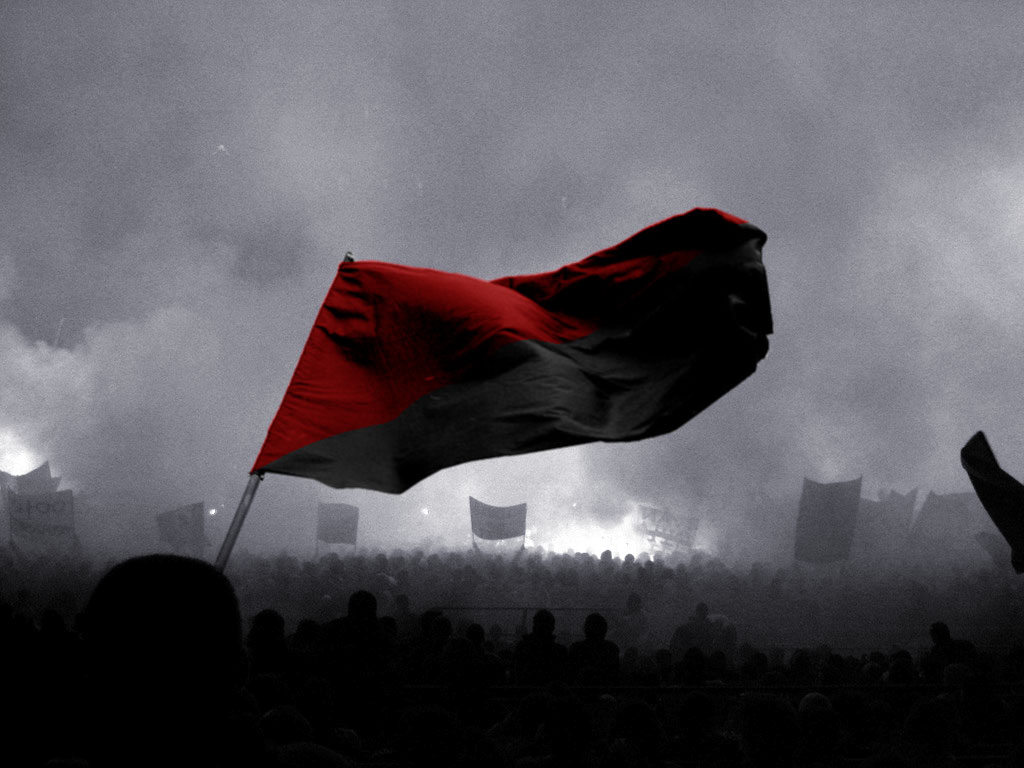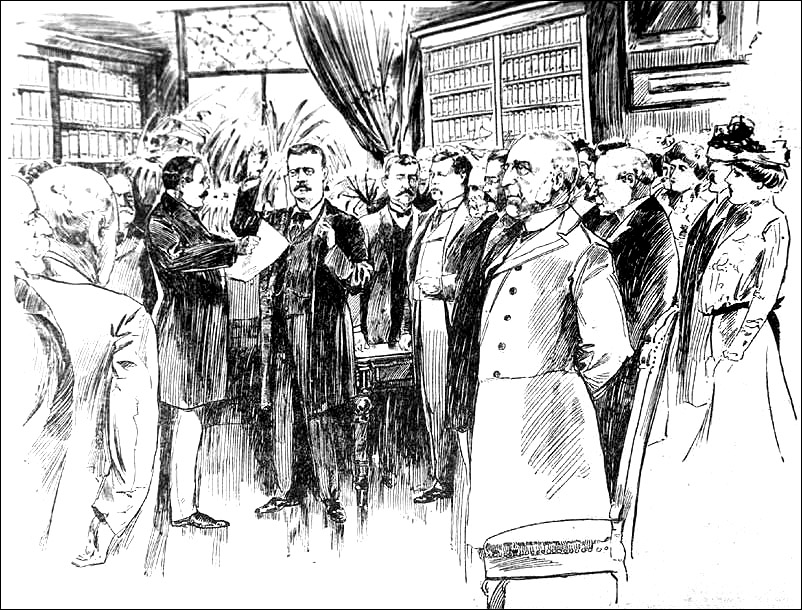A Storm Unending
By: T.R. Finley

What if this storm ends?
And I don't see you
As you are now
Ever again
The perfect halo
Of gold hair and lightning
Sets you off against
The planet's last dance
Just for a minute
The silver forked sky
Lit you up like a star
That I will follow
Now it's found us
Like I have found you
I don't want to run
Just overwhelm me
What if this storm ends?
And leaves us nothing
Except a memory
A distant echo
I want pinned down
I want unsettled
Rattle cage after cage
Until my blood boils
I want to see you
As you are now
Every single day
That I am living
Painted in flames
All peeling thunder
Be the lightning in me
That strikes relentless
- " Lightening Strikes Part I " by Snow Patrol
--
The Election of 1896. By Franklin D. Roosevelt.
Harvard University Press, Cambrige. 1932
It was 1896 and once again a presidential election was at hand. Men commenting on the approaching election had predicted that it would be unusually contentious and divisive. For this was a period of great turbulence in the political life of the United State, when having just had the Monroe Doctrine shattered in the Venezuelan War compounded with economic and social change – almost revolutionary in character- seemed to demand adjustment and reform at a faster pace than those who dominated the ordinary channels of government and politics were prepared to sanction. The economic depression of these years, having been further exacerbated by President Cleveland’s Venezuelan Folly, created harsh conditions in the lives of a people who already felt imposed upon by the unaccustomed demands of a centralized industrial society. In this setting violent currents of social and political criticism welled up to threaten the programs and the power of the established political organizations…
…the Populists had made a strong showing in the presidential election of 1892; and it appeared likely that the heightened unrest which followed the Panic of 1893 and the Venezuelan War of 1895 would stimulate the party’s growth. As depression continued and destabilization of the Democratic Party resulting from the debacle of the Venezuelan War, its leaders became optimistic over the possibilities of making a major gain in the 1896 election…
…the Socialists and their strong anti-imperialist and anti-big business maintained a strong and steady fire of criticism against the Republicans and Democrats and stood to gain more support after the Venezuelan War. What reformers generally expected now was a climactic political disintegration, to be followed by reorganization, and finally the emergence of a great national reform party. The old parties would suffer; if they did not dissolve wholly, they would be seriously divided…
…The Democrats had won a notable victory in 1892. Cleveland’s popular majority was not massive, but the Democrats had made significant inroads in traditional areas of Republican power. This was particularly in the Middle West. Illinois and Wisconsin which had not given their electoral votes to the Democrats since the Civil War, had presented Cleveland and Stevenson with small majorities. The Cleveland administration came to power with a Congress in with both houses were controlled by the President’s party. The election of Democratic state administrations in Illinois and Wisconsin also bore striking evidence of the general surge in democratic strength. But this gain the Middle West came with the defection of Southern Democrats to the Populist Party. The appeal of the Populist Party to Southern Democrats was disconcerting to Eastern Democrats. Since the Civil War the easterners had depended for national victory on their alliance with the Southern Democrats, who usually had followed unquestioningly the leadership of the East. There were other developments to disturb Eastern Democrats. Amongst these was that they did not have absolute control of the Senate…When Cleveland repudiated western fusion with the Populists and attacked Populist platforms as inimical to Democratic policies, western Democrats found themselves in and exceedingly difficult position. Now, as they gave interviews during visits to Washington or when they spoke in the West upon return from visits or periods of service at Washington, they vented their irritation and frustration with the Cleveland Policy…
…In 1894 William Jennings Bryan issues a stern warning to his party at the Nebraska State Democratic Convention when he said “duty to country is above duty to party” and “I promise you that I will go out and serve my country and my God under some other name, even if I must go alone”. Bryan’s defection after the Venezuelan War to the Populist Party and his announcing his intentions to run for president marked the great division of the Democratic Party and would leave it prey to defeat at the hands of the Republicans…
…The bitter political battle that occurred in the election of 1896 led to the disintegration of the Democratic Party as one of the two major national parties, but did not provide the Populists with a presidential victory. The Democratic Palmer/Buckner ticket and the Matchett/Maguire Socialist Labor ticket siphoned enough votes off from the Bryan/Watson Populist ticket to ensure a Republican Victory in November. It did go beyond this of course, Republicans promised an increased defense budget and to protect American business interests that in the aftermath of the Venezuelan War had become tenuous. Speakers like future President Roosevelt roused crowds of revanchist Americans behind the Republican Nominee William McKinley, promising an American naval and military buildup that would put thousands to work and prevent European nations from stepping on the United States again…
--
Die große Annäherungeutschland und die Vereinigten Staaten in der Weltpolitik (The Great Rapprochement: Germany and the United States in World Policy). By Alfred Vagts
2 Bände, London/New York 1935
…German-American relations throughout the seventies were characterized by great identity and interests. The political interests of the United States almost always ran parallel with those of Germany. However things began to change in the later portion of the eighties with the ascension of Kaiser Wilhelm II. Relations between the two continued to be turbulent as tariff wars between the United States and Germany forced the two farther apart. It would be the Third Anglo-American War (Venezuelan War) and the rise of Anglophobic American policies and militarism that would pull the Bald Eagle and the Imperial Eagle together.
…One of the multitude of factors that led to what would be known as the “Great Rapprochement” between the United States and the German Empire was the issue of Russian and British domination of the Orient…
…Germany and the United States had much in common in the Orient from the onset of the Open Door policy. Philander C. Knox’s Dollar Diplomacy and co-operative financing in China under the McKinley administration was the culmination of German-American joint diplomacy whose main effort was to prevent Russia’s domination of North China and British domination of the Yangste Valley. In the view of the Kaiser and the German government the real danger, or one of them, was that England was trying to bottle up for herself the trade of the Yangste Valley, and that Germany and the United States alone stood for the real policy of open door…
…In German official circles it was that scarcely anything could be more dangerous to their country and its policies if the United States and England came to a rapprochement that would promote England in China. To prevent this Friedrich von Holstein urged acceptance that no rapprochement could be reached with Russia and that any attempt to bring the two together would drive the United States back into the arms of England…
--
Last edited:

